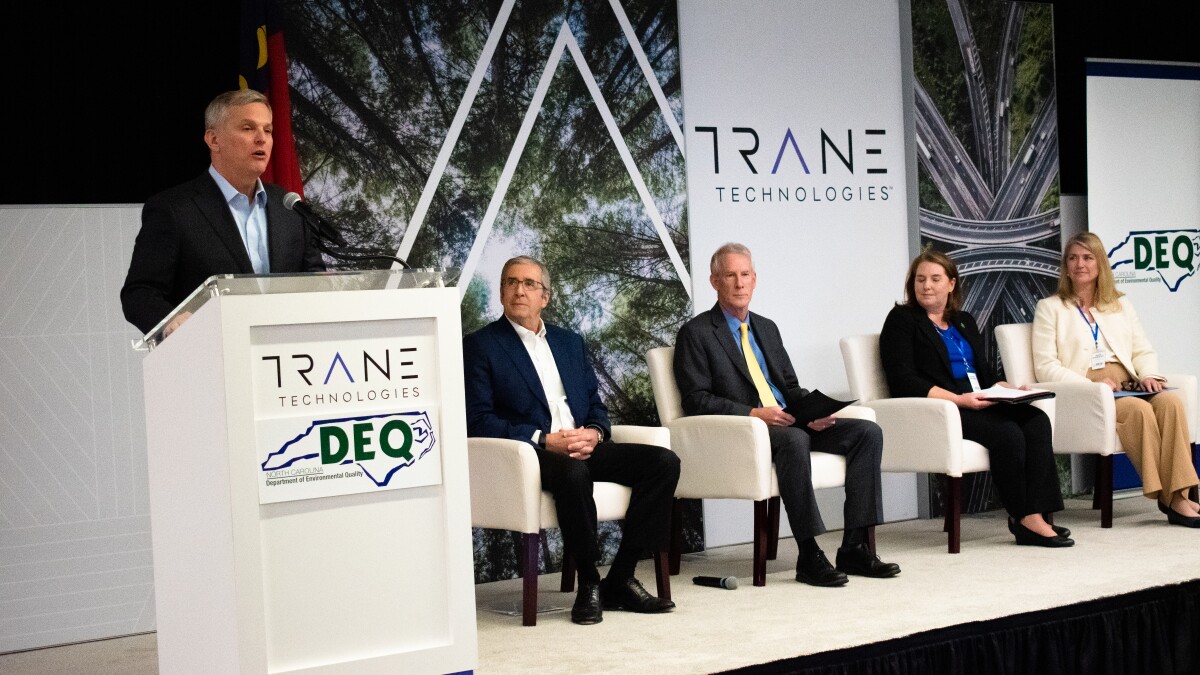The North Carolina government has announced a new program to make homes more energy-efficient and save money for residents. This initiative is especially targeted at low- and middle-income households and is funded with $208 million from the 2022 Inflation Reduction Act.
What Is the Program About?
Governor Josh Stein introduced the program at Trane Technologies’ headquarters in Davidson, NC, alongside other key figures like Dave Regnery, CEO of Trane Technologies, and Reid Wilson, Secretary of the NC Department of Environmental Quality (DEQ). The program focuses on helping homeowners upgrade their homes for better energy efficiency and supports the transition to electric appliances.
According to Stein, this effort not only lowers household energy bills but also creates more than 2,000 jobs for contractors and workers who handle installations.
Benefits for Homeowners
The program, called Energy Saver NC, offers two types of rebates:
- HOMES (Homeowners Managing Efficiency Savings): This supports home improvements like better insulation, air sealing, or energy-efficient HVAC systems.
- HEAR (Home Electrification and Appliance Rebates): This covers up to $14,000 for switching to electric appliances like heat-pump water heaters and electric stoves.
For instance, homeowners can receive up to $8,000 for installing heat pumps that work for both heating and cooling.
Who Can Apply?
To qualify, households must earn less than 150% of the area median income. In the Charlotte-Concord-Gastonia region, for example, a family of four earning less than $113,700 qualifies. Both single-family homeowners and multifamily property owners can apply. Tenants can also participate with the landlord’s approval.
Here’s how eligibility works:
- Low-Income Households: Receive a free home assessment during the application process.
- Moderate-Income Households: Get a home assessment at a discounted rate.
Applicants need to work with state-approved contractors for these upgrades—DIY projects are not eligible.
How to Apply
You can apply online, by phone at 866-988-8555, via email, or by mail. The program runs until 2031 or until the funds are used up. To help homeowners understand the process, the state will also organize information sessions in various locations.
Why This Program Matters
Home energy efficiency is becoming increasingly important as electricity demand rises. With more data centers and other infrastructure developments in North Carolina, electricity consumption is expected to grow rapidly.
To meet these demands without increasing carbon emissions, the state is encouraging clean energy solutions like wind farms and efficiency upgrades. Efficient homes reduce overall energy consumption, even if they use electric appliances.
For homeowners, this means lower energy bills and improved indoor air quality. Jennifer Bumgarner from the U.S. Department of Energy highlighted that switching to electric appliances reduces exposure to harmful indoor pollutants, enhancing air quality.
Duke Energy’s Role
Homeowners who are Duke Energy customers can also benefit from the company’s rebate programs. These programs include bill credits for making similar energy-efficient upgrades.
North Carolina’s Energy Leadership
The state already leads in residential energy efficiency compared to other southeastern states, according to the Southern Alliance for Clean Energy. Programs like Energy Saver NC aim to further enhance this leadership, helping communities rebuild with long-term energy savings in mind.
As Julie Woosley, Director of North Carolina’s State Energy Office, said, “When you’re rebuilding with insurance money, you may not be focused on things like energy efficiency. This program helps address that gap.”
Disclaimer – Our team has carefully fact-checked this article to make sure it’s accurate and free from any misinformation. We’re dedicated to keeping our content honest and reliable for our readers.








